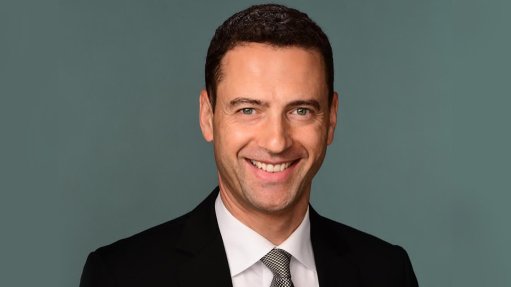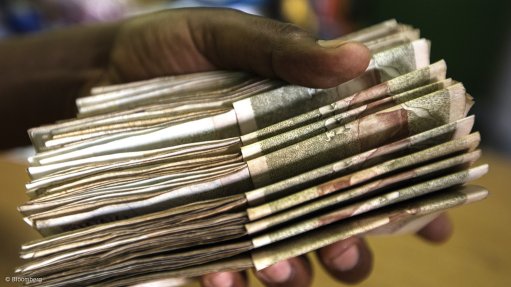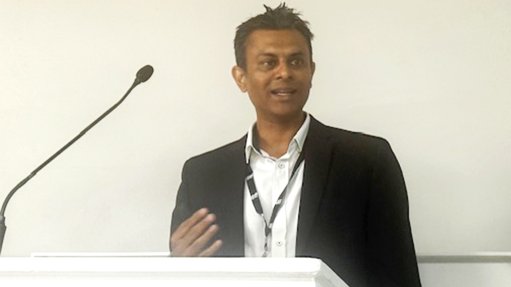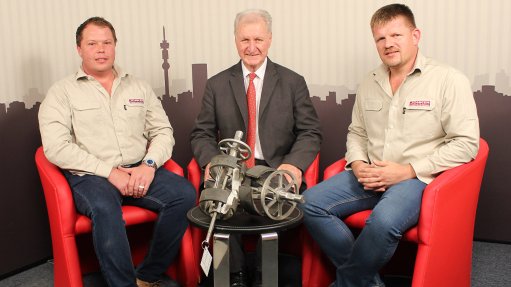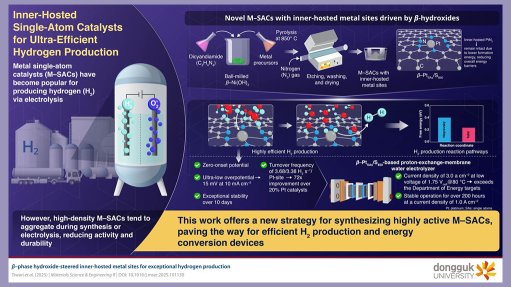Counterfeit lithium batteries pose increased risk to aviation sector
Growth in ecommerce is revolutionising trade, leading to great opportunities in the air cargo industry. At the same time, there is a need to guard against an increased risk of counterfeit cargo, including substandard lithium batteries, says the International Air Transport Association (Iata).
The value of goods carried by air has increased to over $6.2-trillion a year. Even though this translates into less than 1% of world trade by volume, it represents nearly 35% of global trade by value, according to Iata.
Iata global head of cargo Glyn Hughes says some people and organisations are simply not aware of the dangerous goods regulations, while others deliberately flout them.
“You have some organisations that are deliberately not complying with regulations. This puts supply chains and consumers’ lives at risk.”
Iata works closely with governments in developing regulations and recently launched a campaign to raise awareness of consumer safety, particularly with regard to the safety risks of transporting counterfeit lithium batteries.
Under certain conditions, lithium batteries can start emitting smoke or cause fires.
“Quite frankly, governments are not doing enough,” Hughes tells Engineering News. “They don’t look at it as seriously as they look at counterfeit pharmaceuticals, for instance. We haven’t seen a significant number of counterfeit battery manufacturers being taken to task or punished.”
Counterfeit batteries are usually made of substandard materials and are generally manufactured in China and South-East Asia.
“They’re often not declared as batteries, but as children’s toys or clothes. They’re not labelled or properly packaged and are hidden. Like all smugglers, their role is to find ways around the regulations. It’s a major problem.”
Hughes says governments, airlines, ocean liners, trackers and other partners need to work together to find solutions to this challenge.
“We call on all governments to work with not just us but also battery manufacturers and consumer groups to protect the citizens of the planet.”
Hughes says Iata, the trade association for the world’s airlines, representing some 290 airlines, or 82% of total air traffic, is concerned about the effects of the batteries along the supply chain, including at warehouses.
“I would say at least once a week, whether it’s on the ocean, in air or on the road, there is an incident involving a fire from counterfeit lithium batteries.”
Iata has developed guidelines for shippers, freight forwarders, ground handlers, airlines and passengers to help with compliance.
Lithium batteries have become the preferred energy source to power a range of consumer goods, ranging from mobile phones to children’s toys to cars and ebikes. Though widely used, most people are not aware that lithium batteries are dangerous goods that can pose a safety risk if they are not prepared in accordance with the transport regulations.
Meanwhile, Hughes says technology is rapidly changing the way consumers are shopping, with a cascading effect on supply chains.
He says Iata works closely with all the major online platform providers, such as Alibaba, Amazon and eBay.
“One of the biggest opportunities, but also challenges, is that in tomorrow’s ecommerce world, potentially you, me or everyone around us, is a potential shipper. It’s about transporting the same goods that used to go on ships, but individually, by air. It poses challenges for regulatory compliance,” he points out.
He adds, however, that technology is also having a great impact on how cargo is handled, with great promise for an exciting and innovative future. Being able to predict what consumers want will be a leap forward.
Artificial intelligence, predictive analytics, predictive logistics and advanced logistics are expected to become critical in the future. Air cargo trends are shifting.
“High-value cargo, such as watches, jewellery, gold, banknotes and high-value pharmaceuticals, will continue to be transported by air. But, through ecommerce, we’re also seeing an influx of the lower-cost items, which people want delivered quickly.”
Article Enquiry
Email Article
Save Article
Feedback
To advertise email advertising@creamermedia.co.za or click here
Press Office
Announcements
What's On
Subscribe to improve your user experience...
Option 1 (equivalent of R125 a month):
Receive a weekly copy of Creamer Media's Engineering News & Mining Weekly magazine
(print copy for those in South Africa and e-magazine for those outside of South Africa)
Receive daily email newsletters
Access to full search results
Access archive of magazine back copies
Access to Projects in Progress
Access to ONE Research Report of your choice in PDF format
Option 2 (equivalent of R375 a month):
All benefits from Option 1
PLUS
Access to Creamer Media's Research Channel Africa for ALL Research Reports, in PDF format, on various industrial and mining sectors
including Electricity; Water; Energy Transition; Hydrogen; Roads, Rail and Ports; Coal; Gold; Platinum; Battery Metals; etc.
Already a subscriber?
Forgotten your password?
Receive weekly copy of Creamer Media's Engineering News & Mining Weekly magazine (print copy for those in South Africa and e-magazine for those outside of South Africa)
➕
Recieve daily email newsletters
➕
Access to full search results
➕
Access archive of magazine back copies
➕
Access to Projects in Progress
➕
Access to ONE Research Report of your choice in PDF format
RESEARCH CHANNEL AFRICA
R4500 (equivalent of R375 a month)
SUBSCRIBEAll benefits from Option 1
➕
Access to Creamer Media's Research Channel Africa for ALL Research Reports on various industrial and mining sectors, in PDF format, including on:
Electricity
➕
Water
➕
Energy Transition
➕
Hydrogen
➕
Roads, Rail and Ports
➕
Coal
➕
Gold
➕
Platinum
➕
Battery Metals
➕
etc.
Receive all benefits from Option 1 or Option 2 delivered to numerous people at your company
➕
Multiple User names and Passwords for simultaneous log-ins
➕
Intranet integration access to all in your organisation









